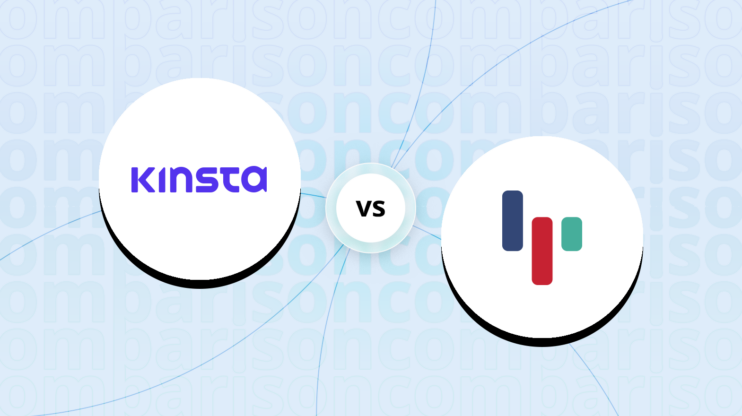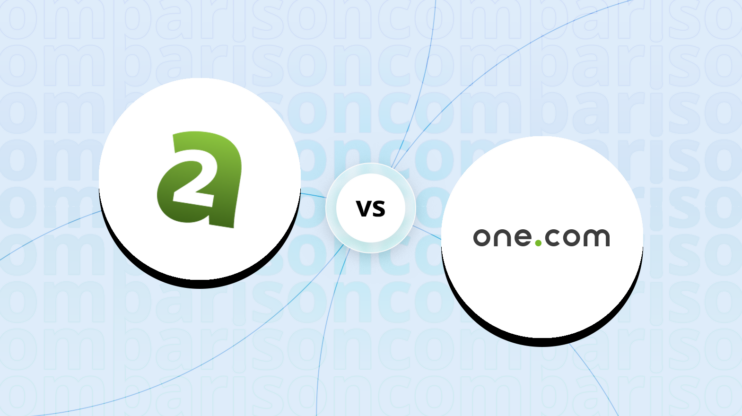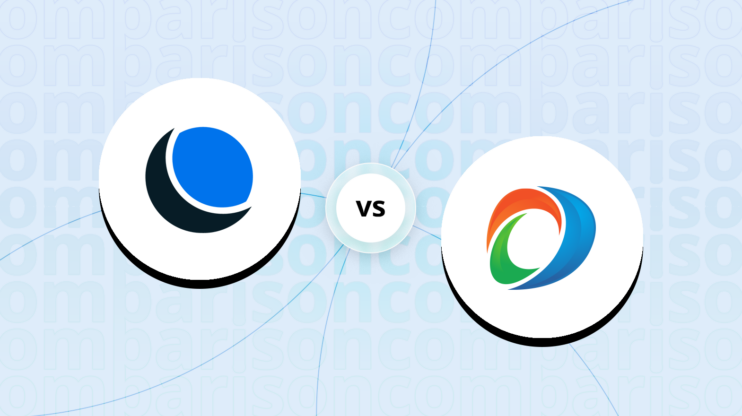Bluehost vs Hivelocity: Final verdict
Looking over Bluehost vs. Hivelocity, each excels in different areas to cater to varying hosting needs and preferences.
-
Bluehost (Overall grade: 8.2)
provides a user-friendly platform with robust features, making it an excellent choice for beginners and those needing specialized WordPress or ecommerce hosting. With features such as free SSL certificates, domain names, and daily backups for the first year, it offers a comprehensive start-up package. Its high-quality uptime, optimized speeds, and scalable solutions ensure reliable performance, though some may find its pricing strategies and upselling tactics a bit off-putting.
Hivelocity (Overall grade: 7.7)
is geared towards businesses requiring powerful, customizable hosting solutions coupled with superior uptime and performance. Their managed services include advanced security measures and a variety of operating system options. Ideal for technical users and enterprises, Hivelocity provides exceptional customer support and reliability, though it lacks some user-friendly features like a free domain and website builder, making it less appealing to novices.
 Overall grade:8.2 |
 Overall grade:7.7 |
|
|---|---|---|
| Uptime and Availability | 9.0 | 9.8 |
| Hosting Performance | 8.9 | 7.0 |
| Hosting Security | 8.1 | 8.7 |
| Price | 8.1 | 8.7 |
| Hosting Features | 7.0 | 2.5 |
| Ease Of Setup | 8.6 | 8.5 |
| User Management | 8.0 | 6.9 |
| Customer Support | 7.9 | 9.5 |
| User feedback | 3.5/5 | 4.9/5 |
Hosting types offered
Both platforms provide a variety of hosting types, each designed to meet the different needs of users.
 |
 |
|
|---|---|---|
| Shared hosting | ||
| Cloud hosting | ||
| WordPress hosting | ||
| Ecommerce hosting | ||
| VPS hosting | ||
| Dedicated hosting |
Although both offer a variety of hosting plans tailored to different needs, in certain cases, one platform may prove to be more suitable.
Detailed comparison
Uptime and availability
Evaluates the average uptime statistics, uptime guarantee and overall availability of the hosting
provider
Score Components:
- Uptime percentage (30%): evaluates the uptime statistics in given period of time
- Uptime guarantee (20%): Assesses if the platform offers an uptime guarantee and
whether the actual uptime matches the promised guarantee. - General performance (25%): Evaluates how fast is the average response time and overall
it’s stability. - Responsiveness (10%): Adaptability to different devices and screen sizes.
- Availability (25%): Reflects the total downtime and number of outages.
 9.0
9.0
 9.8
9.8
SECTION 1:
Winner Hivelocity: Proven consistency and superior uptime.
SECTION 2:
Hivelocity offers a 99.99% uptime guarantee and has achieved 100% uptime for network and power since 2011. They provide a credit for any downtime under the guaranteed uptime, excluding scheduled maintenance. Hivelocity’s network uses multiple tier-1 carriers to ensure reliable, uninterrupted service.
SECTION 3:
Bluehost also demonstrates high-quality uptime, with scores ranging from 99.63% to 100% in various reviews. Their cloud hosting offers a 100% network uptime SLA. Bluehost compensates for network downtime by crediting 5% of the monthly fee for every 30 minutes of downtime.
Which one has better hosting performance?
Score Components:
- Hosting speed (30%): This includes SSD quality, Load times, PageSpeed score ranges,
additional information on website speed, built-in plugins for performance enhancement, available caching
methods, and CPU/RAM options - CDN (20%): Considers whether CDN is available or not, whether it’s free or paid, and
the quality of the CDN service - Available data centers (30%): Evaluates the number of data centers and their locations
globally. - Scalibility (20%): Looks at whether elastic scaling is available, the process required
to scale (manual upgrade vs. automatic scaling), the presence of dedicated servers, and the costs
associated with scaling.
 8.9
8.9
 7.0
7.0
🏆 Winner: Bluehost: Reliable and high-performance hosting for WordPress and more.
When comparing the general performance of Bluehost and Hivelocity, Bluehost stands out due to its top-tier speed for WordPress sites, featuring SSD storage and a built-in CDN to optimize load times. It promises 100% network uptime for cloud hosting plans and has a global data center network, ensuring reduced latency. Hivelocity, while having robust 100% power uptime and impressive network features like a self-healing international network, offers extensive peering and a considerable 99.99% uptime. They also have data centers across six continents, ensuring broad global coverage. However, Bluehost’s combination of speed, built-in performance optimization tools, and free CDN availability give it a slight edge.
Website Speed
Bluehost delivers exceptional website speed, particularly for WordPress sites, due to its optimized infrastructure and scalable PHP workers. With all plans offering SSD storage and a built-in CDN, page load times are significantly reduced, providing a smoother user experience. Hivelocity also offers high-end hardware options and SSD storage that promise quick deployment and high performance. Despite this, Bluehost’s dedicated WordPress optimization and additional tools for enhancing site speed make it the leading option for faster web performance.
Scalability
Bluehost offers a range of scalable hosting solutions, including shared, VPS, dedicated, and managed cloud hosting. While it doesn’t mention elastic scaling, users can easily upgrade their plans as needed. Dedicated servers are available with high-performance Intel Xeon-D CPUs. On the other hand, Hivelocity provides instant deployment and offers various server performance options, but there’s no clear indication if scaling is automatic or requires plan upgrades. The cost to scale with Hivelocity may vary, and it’s best to contact their support for specific pricing details.
Which one has better security features?
and regulatory requirements
Score Components:
- Technical security measures (40%): This includes encryption, firewalls, DDoS
protection, secure configurations, server monitoring, access control and availability of security addons
(e.g Sitelock security). - Operational security measures (30%): Encompasses data privacy, backups and data
redundancy. - Compliance and certifications (20%): Adherence to legal and regulatory requirements
(e.g., GDPR, HIPAA) and possession of certifications (e.g., ISO 27001, SOC 2). - Business and reliability (10%): Factors in the provider’s reputation, uptime
guarantees, and customer support.
 8.1
8.1
 8.7
8.7
🏆 Winner
Hivelocity Hosting: Offers robust security and compliance features suitable for businesses with stringent security needs.
Both Bluehost and Hivelocity, have notable differences in their approaches to technical and operational
security, as well as in their compliance with regulations.
Technical security measures:
Bluehost provides free SSL certificates powered by Let’s Encrypt and premium SSL certificates from Comodo with a $10,000 warranty. Daily automated backups, DDoS protection, a web application firewall, 2-factor authentication, and automated WordPress updates bolster its security. Hivelocity offers three levels of SSL certificates, malware scanning with Maldet, robust firewall measures, and active virus monitoring with ESET. Both providers offer DDoS protection, but Hivelocity adds proactive malware scanning and brute force detection with cpHulk.
Operational security measures:
Bluehost includes automated daily backups, traffic encryption, malware scanning, and email security with spam filters and antivirus. Hivelocity supports 24/7 monitoring and support, advanced firewall and network security, hardware diagnostics, and active antivirus monitoring. While Bluehost focuses on integrated solutions from Jetpack and SiteLock, Hivelocity employs comprehensive audits and advanced proactive measures, making it strong in operational security.
Compliance and certifications:
Bluehost is GDPR-compliant but does not support global PCI compliance on shared hosting plans without a full CDN solution. However, they can assist with PCI compliance for VPS and Dedicated servers. Hivelocity extends its compliance measures including SSAE-16 and HIPAA audits, along with PCI certification, making it more suitable for industries needing specific regulatory adherence like healthcare and payment processing.
 |
 |
|
|---|---|---|
SSL certificate |
Free SSL, Premium SSL (Comodo) |
Basic, Business, Premium SSL |
Additional security features |
Automated backups, DDoS protection, malware scanning |
Robust firewall, proactive malware scanning, brute force detection |
PHP versions |
PHP Workers available |
Not specified |
GDPR compliance |
Yes |
Not specified |
HIPAA compliance |
Not specified |
Yes |
PCI compliance |
Yes, with conditions (VPS, and Dedicated servers) |
Yes |
Hosting features
Score Components:
- Domains (20%): Assesses the availability of a free domain, domain purchase options, and
pricing - Email (15%): Considers if the provider offers full email hosting, or is reselling
third-party service, and if the email is only transactional or not - Website builder (15%): Checks if website builder is available, and it’s user
friendliness and overall the level of customization allowed. - Staging environment (20%): Determines if a staging environment is available, allowing
for testing changes before going live. - FTP & SFTP accounts (10%): Evaluates if and how easily users can access FTP and
SFTP accounts - Git and SSH access (20%): Assess whether Git is integrated into the hosting service and
if SSH access is provided
 7.0
7.0
 2.5
2.5
🏆 Winner:
Bluehost: Reliable hosting with robust features and easy-to-use tools.
Bluehost and Hivelocity offer a diverse set of hosting services to cater to various needs, but they differ significantly in their approach and feature sets. Bluehost stands out with a variety of user-friendly options, including a free AI site creation tool. Its shared hosting packages start with basic essentials and scale up to offer more sophisticated daily backups and advanced security measures. The inclusion of a free domain for the first year and free CDN across many plans adds significant value. Bluehost is also recommended by WordPress.org, which can be a decisive factor for many users. However, some promotional prices only apply for the first term, and additional fees may apply if you cancel the service but want to retain your domain.
Hivelocity takes a different route with its focus on managed services, which include 24/7 support, proactive bootless OS security updates, and advanced performance optimization. Hivelocity excels in operating system variety, offering extensive options from CentOS to Windows Server. Its managed services are great for users needing hands-off maintenance but lack the free domain and website builder features that Bluehost offers. Instead, Hivelocity focuses on hardware diagnostics, RAID monitoring, and proactive malware scanning, ensuring high reliability for more technically advanced users. But without the ease-of-use features like those available in Bluehost, it might not be the best choice for those new to website hosting.
 |
 |
|
|---|---|---|
Free domain |
Yes, for the first year |
No |
Free SSL |
Yes, for the first year |
Yes |
Email hosting |
Yes, through Google Workspace |
No |
Website builder |
Yes |
No |
Staging environment |
No |
No |
FTP & SFTP account |
Yes |
Yes |
Git and SSH access |
No |
Yes |
Free backup |
Yes, for the first year |
Yes, daily Rapid Restore |
Money back guarantee |
Yes |
No |
a location.
As a result in rare cases the features mentioned here can differ from the ones you see on their websites.
Both providers support a range of users from beginners to experts with user-friendly website builders and WordPress staging areas. However, in terms of developer tools, both Bluehost and Hivelocity offer robust options including SSH access, support for multiple programming languages, and Git for version control, thus appealing to developers looking for advanced capabilities.
Email services:
Bluehost offers email hosting through Google Workspace, allowing users to manage professional email services and campaigns easily. Hivelocity, on the other hand, does not offer direct email hosting but ensures robust server performance with proactive measures like malware scanning and security patching. For those looking to manage extensive email campaigns or needing transactional email capabilities, Bluehost’s partnership with Google Workspace could be a significant advantage, while Hivelocity’s strength lies in server management and security.
Price
Score Components:
- Plan value (40%): What each pricing tier offers.
- Transparency and clarity (30%): Clearness of pricing structures.
- Flexibility of plans (20%): Range of options to suit different budgets.
- Hidden costs (10%): Additional expenses not included in the plan.
 8.1
8.1
 8.7
8.7
Winner Hivelocity: Hivelocity offers an extensive array of hosting solutions with better cost efficiency and customization options.
Evaluating the pricing of plans among various hosting providers can be complex due to their differing pricing and renewal strategies. Additionally, certain plans require annual commitments, which adds to the difficulty of making comparisons. The prices listed are based on monthly commitments; plans requiring annual commitments are indicated. Additionally, although some providers offer identical plans for WordPress and shared hosting, we have created separate tables for each to enhance clarity.
When comparing the pricing plans of Bluehost and Hivelocity, several factors come into play, such as pricing tiers, features, and unique offerings. Bluehost offers a range of shared, VPS, dedicated, and cloud hosting plans with a variety of features including free AI tools, daily backups, and first-year free domain registration. On the other hand, Hivelocity stands out with custom-built bare metal servers, game server solutions, and instant servers, often at competitive prices. Hivelocity’s transparency in pricing and the array of options make it a compelling choice for businesses looking for tailored hosting solutions.
 |
 |
|---|---|
|
Basic $10.99
1 Website, 10 GB SSD Storage, Free CDN, Free Domain 1st Year, Free SSL 1st Year, Chat Support, AI Tools, Daily Backups 1st Year, Domain Privacy 1st Year, Malware Scanning. Value for price:7.5
|
N/A |
|
Plus $14.99
Unlimited Websites, Unmetered SSD Storage, Free CDN, Free Domain 1st Year, Free SSL 1st Year, Chat Support, AI Tools, Daily Backups 1st Year, Domain Privacy 1st Year, Malware Scanning. Value for price:8.2
|
N/A |
 |
 |
|---|---|
|
Basic $10.99
1 Website, 10 GB SSD Storage, Free CDN, Free Domain 1st Year, Free SSL 1st Year, Chat Support, AI Tools, Daily Backups 1st Year, Domain Privacy 1st Year, Malware Scanning. Value for price:7.5
|
N/A |
|
Plus $14.99
Unlimited Websites, Unmetered SSD Storage, Free CDN, Free Domain 1st Year, Free SSL 1st Year, Chat Support, AI Tools, Daily Backups 1st Year, Domain Privacy 1st Year, Malware Scanning. Value for price:8.2
|
N/A |
 |
 |
|---|---|
|
Cloud 1 $79.99
1 Website, 10 GB SSD Storage, 2 vCPU Compute Power, 100% Network Uptime, 24/7 Priority Support Voice Chat. Value for price:7.8
|
N/A |
|
Cloud 10 $109.99
10 Websites, 125 GB SSD Storage, 20 vCPU Compute Power, 100% Network Uptime, 24/7 Priority Support Voice Chat. Value for price:8.0
|
N/A |
Enterprise plans
For enterprise-level solutions, Bluehost offers dedicated hosting with prices starting at $79.99/month, featuring high storage and bandwidth capacities. Their plans come with free upgrades for the first year, including backups and domain privacy. Hivelocity, on the other hand, provides custom-built bare metal servers and a plethora of managed services starting at $35/month. These services include comprehensive security measures and hardware diagnostics, catering well to large-scale business needs. Given the vast range of customization and support options, Hivelocity is a powerful contender for enterprises seeking fully managed and configurable hosting solutions.
Bluehost vs Hivelocity: Ease of setup
platform.
Score Components:
- Site migration (25%): Assesses whether the provider offers tools for site migration,
either automated or manual, and whether these services are free or require a fee. - Admin panel usability (35%): Evaluates the type of admin panel provided, such as the
standard cPanel or a custom solution, focusing on its accessibility and user-friendliness for both
technical and non-technical users. - Setup features (20%): Examines the availability and ease of use of various setup
features, including FTP accounts, file managers, email account setup, PHPMyAdmin, and easy CDN
configuration. - Help center quality (20%): Measures the quality and accessibility of the provider’s
help center resources, including articles and tutorials.
 8.6
8.6
 8.5
8.5
🏆 Winner: Bluehost Simplifies website setup with AI tools and guided processes.
Bluehost employs a simple setup wizard and AI WonderSuite tools specifically designed to ease the process for novices. When setting up an online store or WordPress site, Bluehost’s guided setup walks users through each step, offering hand-holding that is invaluable for non-technical users. Bluehost automatically installs the latest WordPress version upon account creation, instantly making your site ready for customization. The user-friendly onboarding interface makes website setup almost effortless, especially with the Wonder Theme for store building. Its design ensures that both beginners and experts can navigate its functionalities without unnecessary complexity.
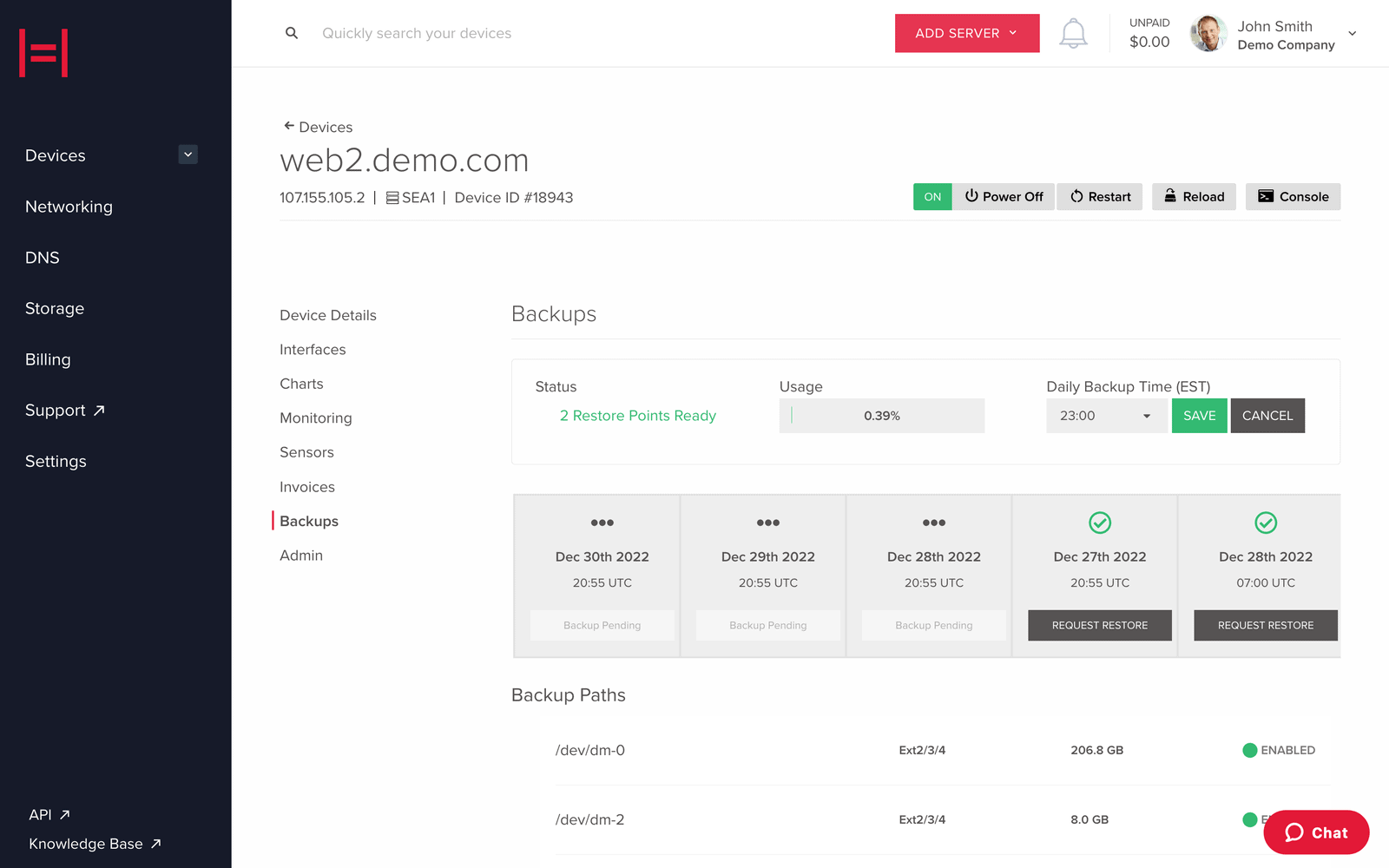
Hivelocity, on the other hand, boasts a wide range of control panels like cPanel, Plesk, and Webmin, aimed at simplifying server and site management. Users benefit from various operating systems like CentOS and Ubuntu, lending flexibility to meet diverse technical needs. Hivelocity offers managed services that handle much of the day-to-day server management. While its control panel options may seem overwhelming to non-technical users, they offer enhanced control for those with a technical background. The variety of tools and operating systems make Hivelocity a powerful option for tech-savvy users who require granular control over their hosting environment.
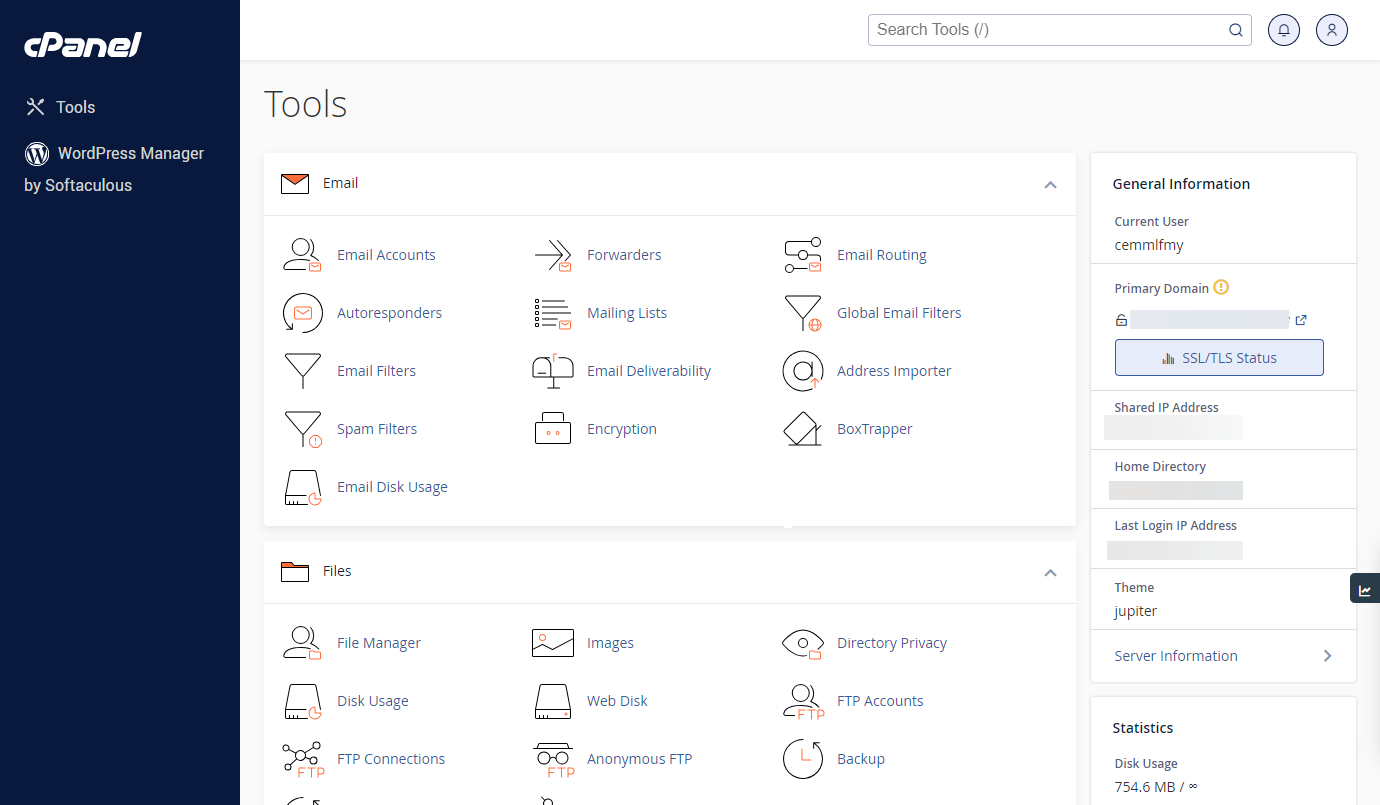
Bluehost offers a streamlined migration process with specific resources dedicated to WordPress sites. These tools are generally self-service and free, enabling smooth transitions without additional costs. Their support channels further help users troubleshoot any migration issues, ensuring continuity.
Hivelocity’s migration tools are more manual and technical, often requiring interaction with their support team. While they do provide comprehensive instructions in their knowledge base, the lack of automated migration services may necessitate expert assistance, potentially incurring extra costs.
Bluehost’s help center features a comprehensive knowledge base, with articles and tutorials that cater to various aspects of website setup and maintenance. Available 24/7, the support options include chat, phone, and email, ensuring users can get help anytime. Conversely, Hivelocity provides an extensive and frequently updated knowledge base covering a wide array of topics. Their 24/7 support is accessible through chat, phone, and ticketing systems, offering crucial resources for more technically inclined users.
The platforms provide extensive knowledge bases filled with guides, how-to articles, and instructional content. Bluehost offers a wide range of resources alongside 24/7 chat and phone support. Hivelocity also boasts a detailed help center with an intuitive search function and around-the-clock support via live chat, phone, and ticketing, ensuring comprehensive user support.
User management
accessibility.
Score Components:
- Role customization (40%): Flexibility in creating and defining user roles and
permissions. - Ease of management (30%): User interface and tools for managing users.
- Access control (20%): Effectiveness of access control measures for different user
levels. - Scalability (10%): Ability to manage a growing number of users efficiently.
 8.0
8.0
 6.9
6.9
🏆 Winner Bluehost: Bluehost offers more advanced user management features that cater to various levels of account control and permissions.
Bluehost provides an extensive and detailed user management system, offering three distinct roles: Primary Contact, Admin Contact, and Tech Contact. Each of these roles comes with clearly defined permissions and responsibilities, ensuring flexibility and specialization for different user needs. In contrast, Hivelocity does not offer any specific information about its user management features, which limits direct comparison. The empowerment provided by Bluehost’s diverse user roles facilitates more streamlined management and delegation of responsibilities—advantageous for users who require comprehensive access control.
The user interfaces and tools of Bluehost make the process of managing user roles straightforward. Users can easily log into their account manager, access options via a profile icon, and handle role assignments through a well-organized drop-down menu. Adding new users is also made simple with clear steps, including an email invitation system for new users to set up their credentials. Hivelocity’s user interface remains unknown, but the lack of available information suggests it might not have the same seamless and user-friendly management tools visible in Bluehost.
When it comes to access control measures, Bluehost offers refined control with permissions tailored for specific roles, ensuring that users can only perform relevant actions. This granularity helps prevent unauthorized access to sensitive account features. As organizations grow and require more users to manage domains and services, Bluehost allows the Primary Contact and Admin Contact to efficiently manage numerous users and their roles, adapting seamlessly to scaling needs. Without information on Hivelocity’s approach, it’s clear Bluehost’s structured role delegation and access management present a more dependable and scalable solution.
Bluehost user roles table:
| Role | Description | Access highlights |
|---|---|---|
| Primary Contact | Unique role, responsible for account communication and high-level decisions | Edit account and payment info; Manage/add/delete other user roles; Purchase/renew/manage products; Edit WHOIS info |
| Admin Contact | Manages settings and permissions (except Primary Contact) | Edit payment info; Add/edit/delete user roles; Purchase/renew/manage products; Edit WHOIS admin/tech info |
| Tech Contact | Manages technical aspects of the account | Manage/renew products and services; Edit WHOIS admin/tech info |
(Hivelocity user roles table not included due to lack of information)
Customer support
hosting provider.
Score Components:
- Support communication channels (30%): Measures the variety of customer support types
provided (live chat, chatbot, email, phone, etc.) - Availability (20%): Assesses the availability hours for each channel, including 24/7
support options. - Technical support quality (30%): Assesses whether the provider offers comprehensive
technical support, including hardware upgrades (e.g., HDD to SSD), software installations, and web
server configuration changes. - Enterprise support (20%): Checks if there are dedicated or priority support services
for enterprise-level customers.
 7.9
7.9
 9.5
9.5
🏆 Winner
Hivelocity: Offers extensive worldwide data centers, 24/7 availability through multiple support channels, and consistently high customer ratings.
 |
 |
|
|---|---|---|
Phone support |
||
Live chat support |
||
Chatbot |
||
Email/ticket support |
||
Enterprise support (dedicated agent, priority support) |

Bluehost and Hivelocity both offer 24/7 live chat and phone support, ensuring that customers have access to immediate assistance. However, Bluehost has recently eliminated its email/ticket support system to focus more on live interactions, while Hivelocity continues to offer ticket-based support. This could be an important consideration for customers who prefer different modes of communication.

Hivelocity distinguishes itself by providing 24/7 support availability across all channels including email/ticket support. Additionally, Hivelocity’s support services are enhanced by specialized features like custom server options and impeccable data center facilities. On the other hand, Bluehost also provides advanced support features like expedited support for dedicated hosting and multi-server management, but its customer feedback indicates mixed reviews, with some users experiencing long wait times and pushy upselling.
Bluehost vs Hivelocity: User feedback
User feedback on Bluehost as a hosting provider is highly mixed. On the positive side, many users commend their affordable pricing, ease of use with WordPress integration, and the comprehensive range of features such as free domain names, SSL, and excellent customer support. However, numerous reviews criticize the service for frequent outages, technical support issues, hidden fees, and unreliable performance, which have significantly impacted users’ businesses. Additionally, complaints about complicated navigation, aggressive upselling, and a steep learning curve for first-time users are common. While some users find Bluehost reliable and cost-effective, others have had severely negative experiences, citing problems like non-functional websites, billing issues, and inadequate customer service.
Hivelocity is highly praised for its exceptional customer service, reliable server performance, and knowledgeable technical support. Long-term users, some with over a decade of experience, commend the company for its personalized support and rapid response times, often highlighting near-instant ticket resolutions and a proactive approach to addressing issues. Additionally, the infrastructure and network reliability receive strong accolades, with many users experiencing minimal to no downtime. While a few noted the increasing prices and occasional variability in support quality, the consensus is that Hivelocity offers an outstanding hosting service marked by dependability and top-tier customer support.
Bluehost vs Hivelocity: FAQ
Which platform is better suited for hosting WordPress websites?
Bluehost is better suited for hosting WordPress websites, offering specialized tools and features optimized for WordPress, such as WooCommerce for ecommerce. Bluehost is also recommended by WordPress.org, which makes it highly trusted within the WordPress community. Hivelocity doesn’t have specific WordPress hosting plans, making Bluehost the clear winner in this category.
Are both platforms suitable for beginners?
Bluehost is very beginner-friendly, providing a simple setup wizard and AI tools, making it ideal for those new to web hosting. It offers guided setup processes and a range of user-friendly features. Hivelocity, on the other hand, is more geared towards technical users with its extensive control panel options and technical support, making it less suitable for beginners.
Which hosting service offers better security features?
Both Bluehost and Hivelocity offer robust security features, but their focus differs. Bluehost provides free SSL certificates, daily automated backups, DDoS protection, and malware scanning. Hivelocity goes further with advanced firewall measures, proactive malware scanning, and virus monitoring, making it a better choice for businesses requiring stringent security measures.
What are the major differences in pricing and value between bluehost and hivelocity?
Bluehost offers a range of shared, VPS, dedicated, and cloud hosting plans with introductory features like free domain names and daily backups for the first year. Hivelocity provides custom-built bare metal servers and managed services at competitive prices but lacks introductory offers like free domains. Bluehost’s pricing strategies include upselling tactics, while Hivelocity offers transparent pricing with a focus on customizable services.
Which platform offers better customer support?
While both Bluehost and Hivelocity offer 24/7 support through phone and live chat, Hivelocity includes additional options like email/ticket support and has consistently high customer ratings for its responsive and knowledgeable service. Bluehost has mixed reviews, with some users reporting long wait times and pushy upselling, making Hivelocity the preferred choice for reliable customer support.
The making of this blog
We followed a clear, step-by-step process to write and research this article.









